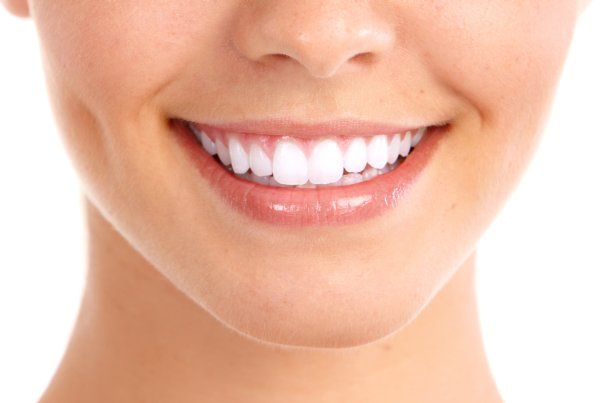The Facts About Gum Recession
 Many people suffer from gum recession. It is a fairly common condition that impacts the majority of adults. Similar to how more people lose teeth as they age, more people suffer from this condition as they age. By the time someone is 65 they have an 88 percent likelihood of dealing with receding gums. Fortunately, there are things you can do to prevent and treat it.
Many people suffer from gum recession. It is a fairly common condition that impacts the majority of adults. Similar to how more people lose teeth as they age, more people suffer from this condition as they age. By the time someone is 65 they have an 88 percent likelihood of dealing with receding gums. Fortunately, there are things you can do to prevent and treat it.
What is it?
This condition occurs when the gum tissue starts to pull back or wear away from the tooth. When this happens, more of the tooth is exposed and in severe cases, the roots can be exposed, as well. During this time, a gap can form in between the tooth and the gums, creating the perfect spot for bacteria to hide and plaque to build up. This can lead to gum disease and tooth infections. If that bacteria isn't removed it can start to eat away at the tooth, roots, and even bone structure, causing major oral health problems.
What causes gum recession?
There are multiple triggers for this condition, many of which can be avoided. Gum disease is a common medical reason for gums to recede. When bacteria are left along the gum line, it can create gum disease. As the bacteria spreads, it will go underneath the gum line and start to cause additional issues. This can be prevented with regular trips to the dentist where we can remove the bacteria and reverse the signs of gum disease.
Other triggers include aggressive brushing with a hard toothbrush, hormonal changes during pregnancy or menopause, using tobacco products, and genetics. Hormones and genetics are natural risk factors that cannot be prevented. It is, however, easy to switch to a soft toothbrush and quit smoking. Reducing risk factors is important for people that don't want to become one of the 88 percent.
How is it treated?
The first step is to thoroughly remove the bacteria and plaque that has formed on your teeth, along your gum line, and inside of the exposed pockets. The bacteria and any infection need to be removed in order for the body to stay in good oral health and not deteriorate. Deep cleaning is often called tooth scaling and root planning because the dentist has to clean underneath the gum line. Antibiotics are often given, in addition to removing the bacteria, just in case there are any bacteria left.
Patients with severe gum recession will require more than a simple cleaning. In this case, various surgical procedures may need to be performed. Pocket depth reduction is completed when the dentist wants to remove the bacteria than place the gum securely over the tooth in order to keep it snuggly in place and eliminate the pockets where bacteria is gathering. Soft tissue grafts take place when there isn't enough natural gum tissue left to do this procedure. Skin is cut from the roof of your mouth and grafted to your gum tissue to create new gums, then secured into place.
An experienced dentist can perform these procedures and will use anesthesia to keep the patient comfortable. Once completed, it is important to maintain good oral health habits at home in order to prevent further gum recession or additional oral health issues.
Restorative Dentistry > Emergency DentistRelated Posts
Gum disease affects more than half of all adults in the United States, according to the International Journal of Health Sciences, and there are different forms of the condition. Gum disease is prevalent and one of the major causes of tooth loss. Therefore, it helps to understand the various stages of gum disease and its…
Oral health issues like gum disease can make each day painful and uncomfortable. Call us for more info.When it comes to your oral health, proper oral hygiene and regular checkups at our dental office can help prevent gum disease. Even if the early symptoms of gum disease don't seem to cause any pain, prompt treatment…
Bleeding gums can be painful and ruin one's life. Don't let dental pains make life more difficult.If you're looking for answers to why your gums are irritated or bleeding, we can help. When it comes to oral health, there are multiple reasons for bleeding gums. We can identify the source of the issue and provide…
Does your tooth have minor impairments, such as a crack or chip that affects your ability to smile confidently? If so, dental contouring and tooth reshaping may be beneficial.A cost-effective way of enhancing your smile, tooth reshaping can correct minor defects with subtle changes that give incredible results.If your teeth have a poor shape or…
 Many people suffer from
Many people suffer from